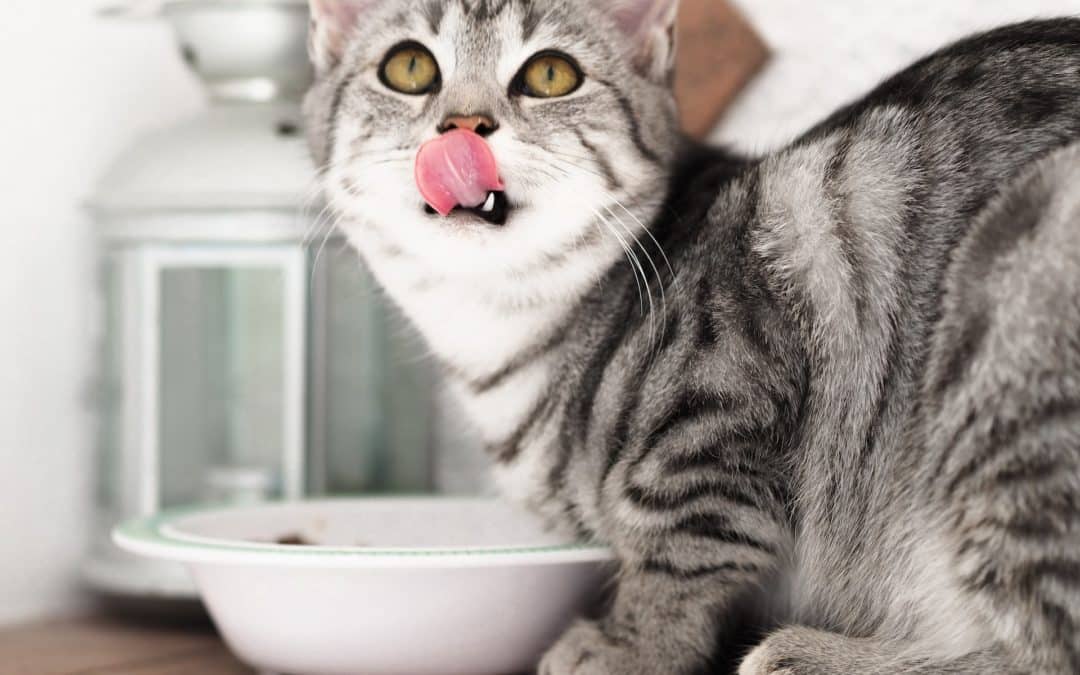Chicken? Beef? Fish? Duck? Carbs or no carbs? Primal feed? Kitten Chow? With a market full of different types of cat food it can be overwhelming to find the perfect diet for your indoor cat. Here are a few facts to keep in mind when shopping for cat food.
What Is the Best Diet for Cats?
Nutrition is very important for cats, just as it is for humans. Domestic house cats have not evolved very far from their ancestors, and, like lions and tigers, they are considered obligate carnivores. This means that the majority of their diet should contain dense proteins.
In the wild, this protein comes from the meat of other animals, most often herbivores or omnivores. Meat protein is essential to a cat’s well being. Although their digestive tracts are able to break down the occasional plants that pass through, cats can not always absorb the nutrients that plants have to offer. If cats feed on too many plants, it can lead to a deficiency in many essential nutrients.
Low carbohydrate diets are best for all cats. Carbs from plant foods can lead to obesity as well as poor dental health. Not only are carbs difficult for cats to digest, but they are also lacking in the nutritional density cats need. They will make your cat feel full, but won’t provide the vitamins, minerals, or energy your cat needs to get through the day.
What Is the Best Kind of Food for Indoor Cats?
When choosing your cat’s diet, keep in mind their age, health, and lifestyle. All of these things will factor into the type of food you want to get for your cat. From kitten to senior, sentry to outdoor, all cats need different types of food.
Cats who are active, healthy, and in their adult years will need higher-density proteins and more food than a sedentary cat. A senior cat may need more essential vitamins to help protect their organs and lengthen their lifespan. Kittens, by contrast, need even more vitamins and minerals than an adult or senior cats to promote growth.
Outdoor cats often need more food than indoor cats, as they expel more energy throughout the day. Cats who have cancer, are obese, or suffer from other medical conditions might benefit greatly from a specialized diet. If you have any questions, you can always talk with your veterinarian about your cat’s diet at your next checkup.
Some Essential Nutrients for Cats Include:
- Vitamin A
- Vitamin D
- Thiamine
- Iron
- Magnesium
Cats Also Need Plenty of Water
Regardless of age or health, water is an essential part of your cat’s diet. Too much or too little water in their daily diet can greatly impact their overall health. Keeping an eye on your cat’s water intake can help you decide on the type of food that will best keep your furry friend hydrated.
Wet Food vs. Dry Food
Nutritional density matters more than whether your cat’s food is wet or dry. Most veterinarians recommend feeding your cat both wet food and kibble. Dry food often is more nutritionally rounded than wet, but wet cat food is more hydrating, which is good for cats that don’t like to drink water.
One positive to both wet and dry foods is their shelf stability when stored properly. This can mean fewer trips to the store for you. Stocking up will give you peace of mind that your cat will always have food if you are stuck at home.
All commercially available cat food has been formulated to meet a cat’s nutritional needs. However, not all brands are created equally. Sometimes a brand will try to sell inferior cat food using clever marketing techniques. Check to make sure that a dense protein (whole meat as opposed to a meal) is listed within the first 5 ingredients on a label to find a food that is good for your cat.
Some cats may be picky with their proteins, if your cat is refusing to eat and you have eliminated any health problems with your vet, try a different flavor. Cats have opinions and they will let you know if they do not like something.
Dietary Advice Specific to Your Cat
Talking with your veterinarian before changing your cat’s diet. A lot of people want to try trendy new raw diets for cats, but raw diets do come with health risks. Your veterinarian can explain what matters the most for your cat’s nutritional needs. Here at East Valley Animal Hospital, we have a knowledgeable staff ready to help you maintain your cat’s health and happiness. Contact us today for an appointment.
Images used under creative commons license – commercial use (2/12/23). Photo by Laura Chouette on Unsplash.

